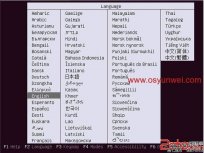29. When echoing strings it's faster to separate them by comma instead of dot. Note: This only works with echo, which is a function that can take several strings as arguments. 输出多个字符串时,用逗号代替句点来分隔字符串,速度更快。注意:只有echo能这么做,它是一种可以把多个字符串当作参数的"函数"(译注:PHP手册中说echo是语言结构,不是真正的函数,故把函数加上了双引号)。
30. A PHP script will be served at least 2-10 times slower than a static HTML page by Apache. Try to use more static HTML pages and fewer scripts. Apache解析一个PHP脚本的时间要比解析一个静态HTML页面慢2至10倍。尽量多用静态HTML页面,少用脚本。
31. Your PHP scripts are recompiled every time unless the scripts are cached. Install a PHP caching product to typically increase performance by 25-100% by removing compile times. 除非脚本可以缓存,否则每次调用时都会重新编译一次。引入一套PHP缓存机制通常可以提升25%至100%的性能,以免除编译开销。
32. Cache as much as possible. Use memcached - memcached is a high-performance memory object caching system intended to speed up dynamic web applications by alleviating database load. OP code caches are useful so that your script does not have to be compiled on every request. 尽量做缓存,可使用memcached.memcached是一款高性能的内存对象缓存系统,可用来加速动态Web应用程序,减轻数据库负载。对运算码(OP code)的缓存很有用,使得脚本不必为每个请求做重新编译。
33. When working with strings and you need to check that the string is either of a certain length you'd understandably would want to use the strlen() function. This function is pretty quick since it's operation does not perform any calculation but merely return the already known length of a string available in the zval structure (internal C struct used to store variables in PHP)。 However because strlen() is a function it is still somewhat slow because the function call requires several operations such as lowercase & hashtable lookup followed by the execution of said function. In some instance you can improve the speed of your code by using an isset() trick. 当操作字符串并需要检验其长度是否满足某种要求时,你想当然地会使用strlen()函数。此函数执行起来相当快,因为它不做任何计算,只返回在zval结构(C的内置数据结构,用于存储PHP变量)中存储的已知字符串长度。但是,由于strlen()是函数,多多少少会有些慢,因为函数调用会经过诸多步骤,如字母小写化(译注:指函数名小写化,PHP不区分函数名大小写)、哈希查找,会跟随被调用的函数一起执行。在某些情况下,你可以使用isset()技巧加速执行你的代码。
Ex.(举例如下)
if (strlen($foo) < 5) { echo "Foo is too short"; }
vs.(与下面的技巧做比较)
if (!isset($foo{5})) { echo "Foo is too short"; }
Calling isset() happens to be faster then strlen() because unlike strlen(), isset() is a language construct and not a function meaning that it's execution does not require function lookups and lowercase. This means you have virtually no overhead on top of the actual code that determines the string's length. 调用isset()恰巧比strlen()快,因为与后者不同的是,isset()作为一种语言结构,意味着它的执行不需要函数查找和字母小写化。也就是说,实际上在检验字符串长度的顶层代码中你没有花太多开销。
34. When incrementing or decrementing the value of the variable $i++ happens to be a tad slower then ++$i. This is something PHP specific and does not apply to other languages, so don't go modifying your C or Java code thinking it'll suddenly become faster, it won't. ++$i happens to be faster in PHP because instead of 4 opcodes used for $i++ you only need 3. Post incrementation actually causes in the creation of a temporary var that is then incremented. While pre-incrementation increases the original value directly. This is one of the optimization that opcode optimized like Zend's PHP optimizer. It is still a good idea to keep in mind since not all opcode optimizers perform this optimization and there are plenty of ISPs and servers running without an opcode optimizer. 当执行变量$i的递增或递减时,$i++会比++$i慢一些。这种差异是PHP特有的,并不适用于其他语言,所以请不要修改你的C或Java代码并指望它们能立即变快,没用的。++$i更快是因为它只需要3条指令(opcodes),$i++则需要4条指令。后置递增实际上会产生一个临时变量,这个临时变量随后被递增。而前置递增直接在原值上递增。这是最优化处理的一种,正如Zend的PHP优化器所作的那样。牢记这个优化处理不失为一个好主意,因为并不是所有的指令优化器都会做同样的优化处理,并且存在大量没有装配指令优化器的互联网服务提供商(ISPs)和服务器。
35. Not everything has to be OOP, often it is too much overhead, each method and object call consumes a lot of memory. 并不是事必面向对象(OOP),面向对象往往开销很大,每个方法和对象调用都会消耗很多内存。
36. Do not implement every data structure as a class, arrays are useful, too. 并非要用类实现所有的数据结构,数组也很有用。
37. Don't split methods too much, think, which code you will really re-use. 不要把方法细分得过多,仔细想想你真正打算重用的是哪些代码?















